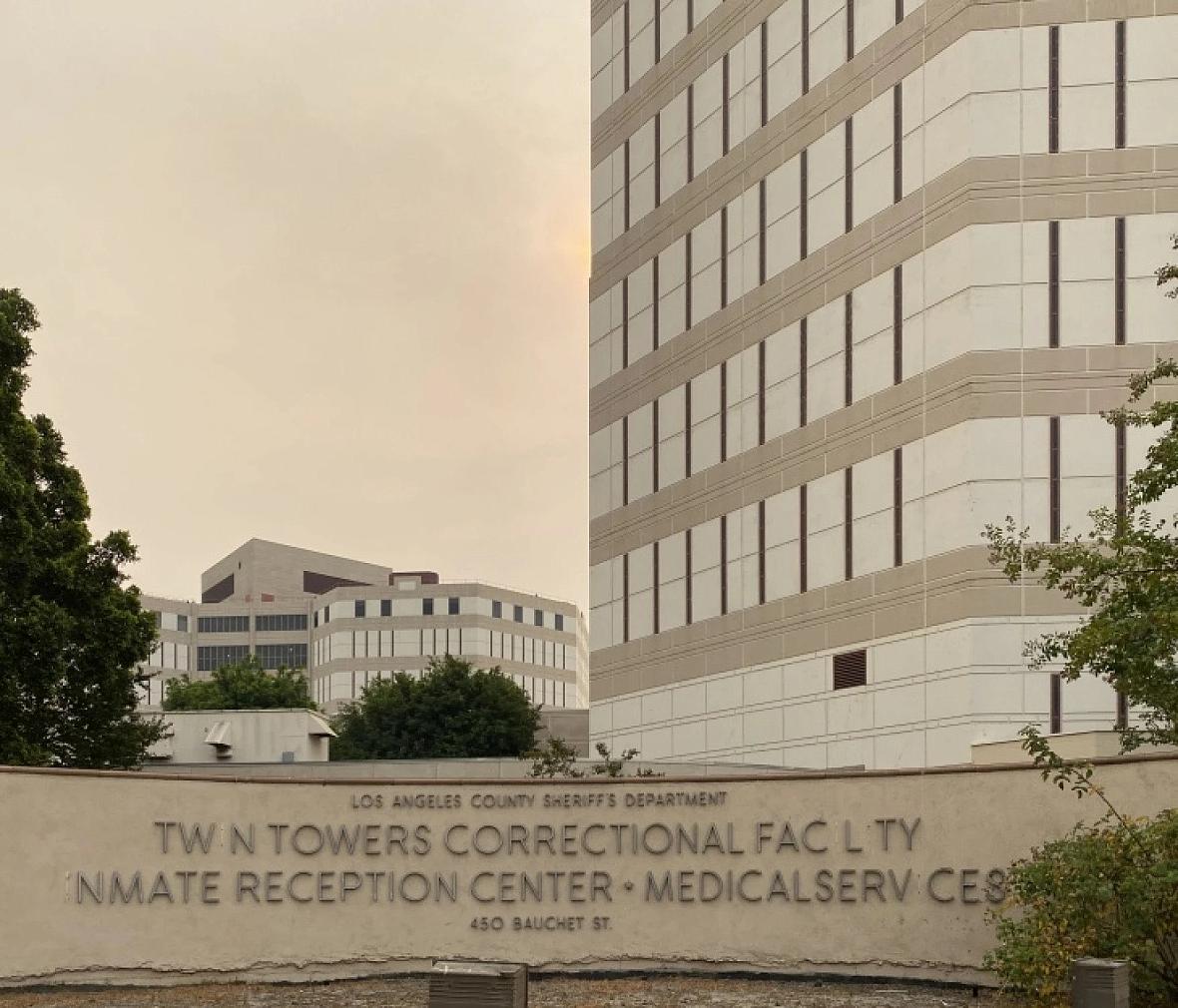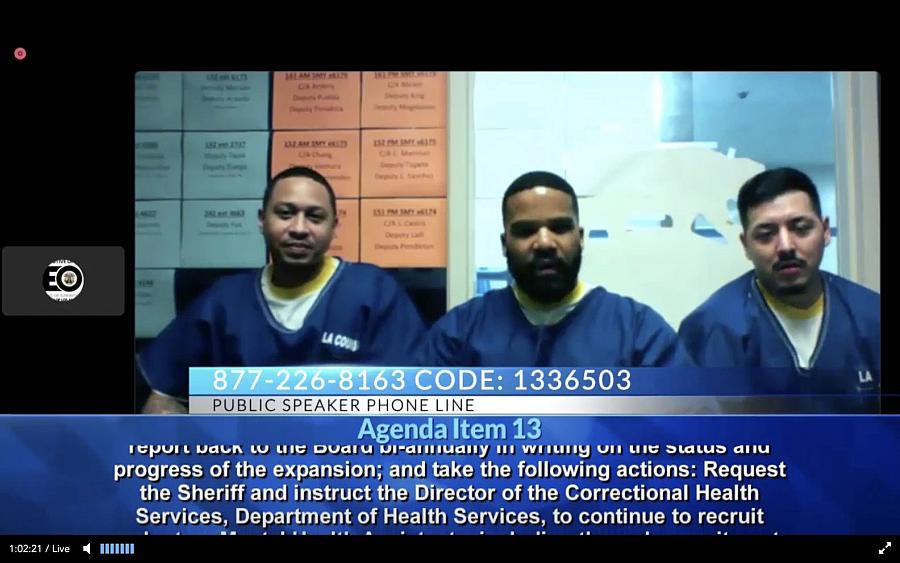Incarcerated Volunteers Are Caring For Peers' Mental Health. LA County Wants To Expand The Program
The story was originally published in LAist with the support from our 2022 Data Fellowship.

L.A.'s Twin Tower Correctional Facility
Robert Garrova / LAist
The L.A. County Board of Supervisors threw additional support Tuesday behind a program in which incarcerated volunteers care for people living with a mental illness behind bars.
Since 2018, incarcerated peer caregivers —or mental health assistants, as they’re called — have worked to assist people living with serious mental illness inside L.A. County jails.
The jail population of the jails with mental health needs is currently about 40% of the more than 13,000 individuals incarcerated.
“We’re doing everything from teaching financial literacy groups to cutting their toenails and that’s hard to get in other places of the jail,” said Craigen Armstrong, a founding member of the program who is currently incarcerated.

Craigen Armstrong (center) spoke with L.A. County Supervisors over video call on Tuesday about the mental health assistants program he helped found.
Board meeting screenshot
According to the motion authored by Supervisor Hilda Solis, the mental health assistants also act as mentors to their incarcerated peers living with mental illness, and encourage them in taking medication and participating in programming.
Solis said Tuesday that mental health assistants undergo at least six months of “intensive hands-on training on how to care for people with severe mental health needs.”
The mental health assistants work out of the Forensic In-Patient (FIP) step-down units, which are meant to be more therapeutic environments for people living with a mental illness who are the sickest within the jails, a smaller subset of the overall jail mental health population.
The FIP step-down units allow for more out-of-cell time. In order for the county to continue expanding the step-down units, the motion says “the Sheriff will need to purchase or otherwise rapidly allocate key therapeutic elements to create a therapeutic physical space, which may include colorful paint, murals, aquariums, soft furniture, plants, and activity tables.”
Tuesday’s motion, which was unanimously approved, directs the Sheriff and Correctional Health Services to “expand rapidly” the number of FIP stepdown pods, tripling the current number of 10 by 2025. The motion also requests that the sheriff’s department continue to recruit volunteer mental health assistants (MHAs), at least two times per year. There are currently nine MHAs working in the jails, Solis said.
Questions around compensation
While Supervisor Holly Mitchell supported the measure Tuesday, she questioned the support given to the mental health workers within the jails.
“It is their role that is making this successful, and I think that should be acknowledged in a significant, relevant way,” Mitchell said.
At minimum, Mitchell said there should be a direct through-line so that MHAs can find employment after release.
The MHAs do not currently receive monetary compensation, although some do take advantage of educational opportunities.
‘A life or death issue’
“This is a life or death issue,” said Armstrong, who co-created the MHA training, during a video call with supervisors. “Mental illness is a complex issue, it’s difficult to treat, and it needs everybody’s help,” he said.
The move to expand the FIP step-down units comes as the county struggles to come into compliance with federal requirements to increase out-of-cell time and other conditions for incarcerated people living with a mental illness.
In what the ACLU called a “watershed moment” last week, the county agreed to improve conditions at the Inmate Reception Center and create nearly 2,000 mental health treatment beds within the community.

